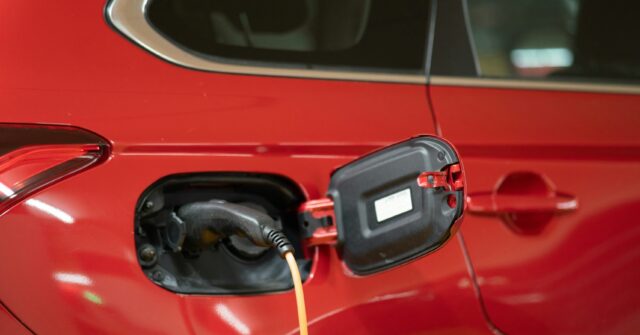On a recent Friday, European Union (EU) countries finalized their decision to impose significant tariffs on electric cars imported from China, amidst a backdrop of resistance from key member states, particularly Germany. The European Commission had previously provisionally endorsed this move after concluding that the Chinese government’s financial support to its automotive sector constituted unfair competition. This new measure, effective from the end of October, is set to introduce tariffs as high as 35.3 percent, which would be added to the existing 10 percent tariff on these imports.
Support for the tariff implementation came from ten EU countries, including major economies like France, Italy, and Poland. In contrast, only five nations—Germany and Hungary among them—opposed the tariffs, while twelve countries, such as Spain and Sweden, chose to abstain from the vote. Although the opposition did not amount to a majority sufficiently strong to prevent the tariffs—requiring at least 15 states representing a combined 65 percent of the EU’s population—the decision ultimately lies with the European Commission. Observers expect that the Commission will endorse the proposed tariffs, reflecting the considerable urgency among supporting member states to protect their domestic automakers.
China has reacted strongly against the imposition of these tariffs, labeling them as “protectionist” and warning that such a course of action could ignite a trade war between Beijing and the EU. The measures are not limited to electric vehicles manufactured by Chinese companies but also apply to those produced by foreign corporations, like Tesla, which would see its exports to Europe subjected to a tariff of 7.8 percent. The EU justifies the tariffs as a necessary step to safeguard local car manufacturers, protecting employment across an industry that supports about 14 million jobs in the region. This defense is particularly focused on creating fair competition in comparison to the extensive subsidies provided to the automobile industry in China.
The diverging perspectives of France and Germany illustrate the complexity of the EU’s internal dynamics regarding this issue. France advocates for the tariffs as a means to ensure fairness for European manufacturers against their Chinese competitors. Conversely, Germany, home to automakers like BMW, Volkswagen, and Mercedes-Benz, argues that the proposed duties could undermine European industries and suggests that dialogue with China should be prioritized over punitive measures. This internal disagreement has led to implications for how the EU presents a unified front in global trade matters, raising concerns about long-term economic implications and competitiveness.
Fears of escalating tensions have proven palpable, as evidenced by actions from leaders like Spanish Prime Minister Pedro Sanchez, who recently shifted his stance from support to requesting that the EU re-evaluate the impending tariffs. Hungary’s Prime Minister Viktor Orban has also voiced his dissent, characterizing the tariffs as a progression in an “economic cold war” with China. Beijing’s threats of retaliation add another layer of uncertainty, as the Chinese government has already initiated investigations into imports of European products like brandy and pork.
The stakes involved in this tariff dispute extend beyond electric vehicles, revealing broader trade tensions between China and the EU. The European Commission is actively pursuing inquiries not only into the automotive sector but also targeting Chinese subsidies in renewable energy technologies such as solar panels and wind turbines. This highlights the EU’s delicate balancing act: while seeking to bolster its clean technology sector and support sustainability initiatives, it simultaneously risks igniting a full-blown trade conflict with a crucial global economic partner. Concerns linger over whether the efforts to protect local industries will ultimately benefit the EU’s green transition goals or hinder them, compounding the challenges the bloc faces in navigating these economic waters without inciting strife.

